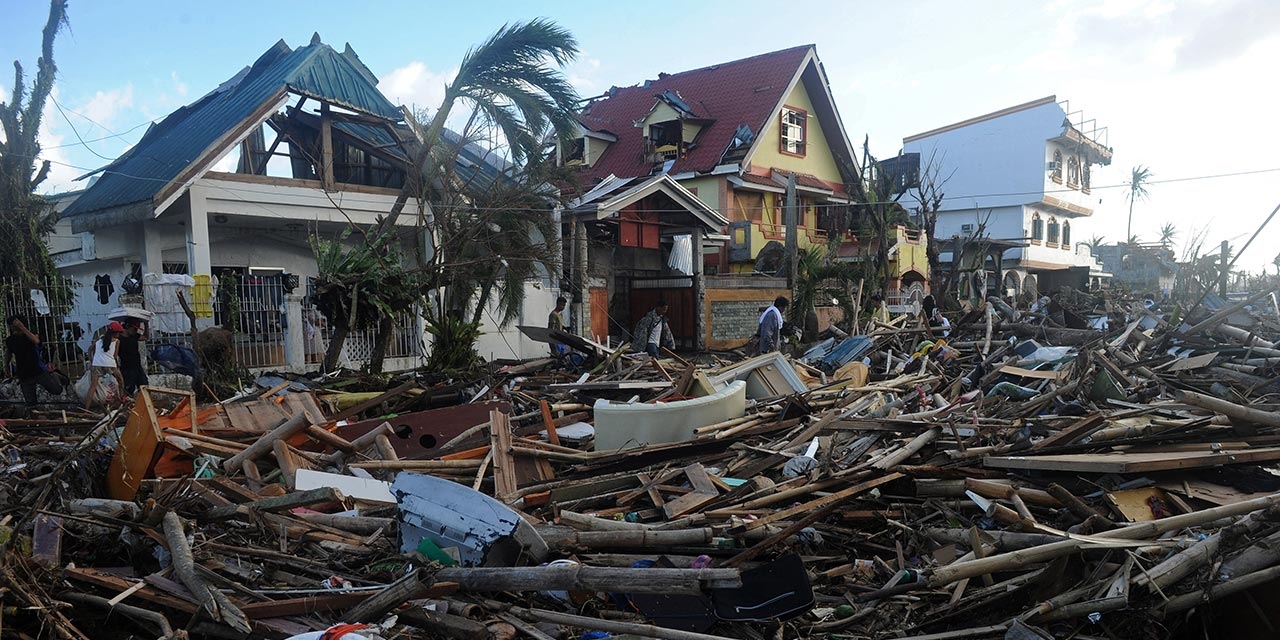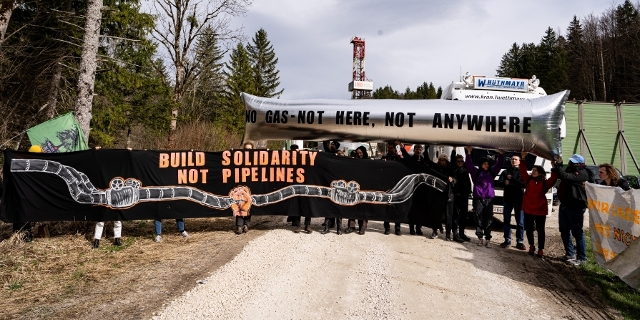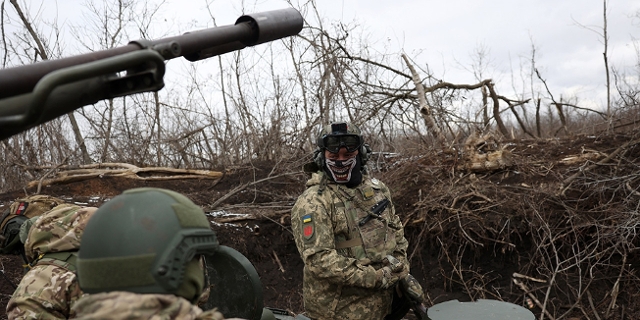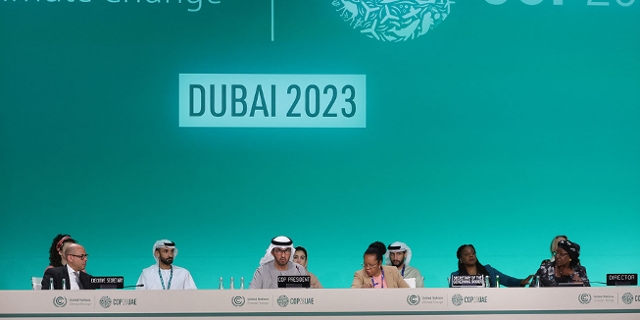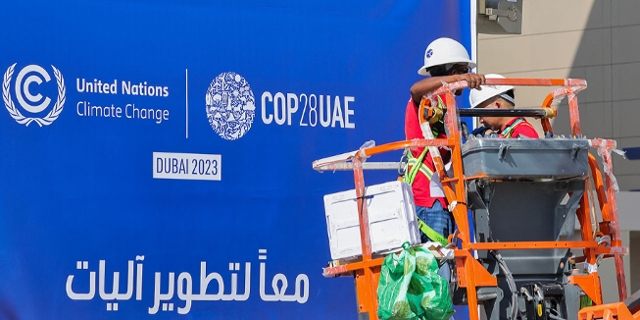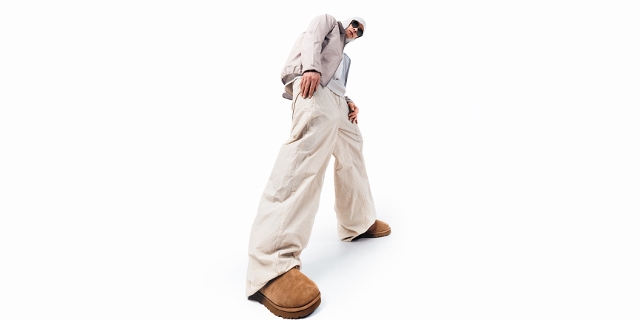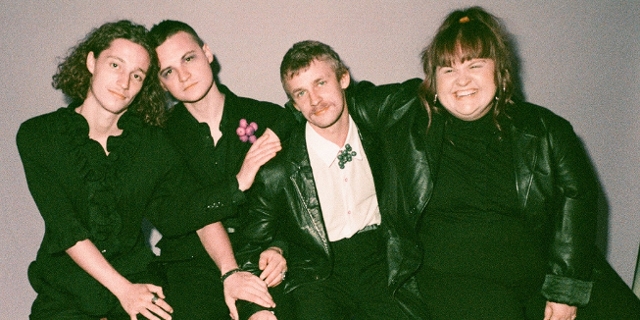„I Refuse To Be Just A Victim“
In November 2013 Typhoon Haiyan devastated the coast of the Philippines. The south-east Asian county is used to being battered by storms but this was something very different. With sustained wind speeds of over 300km per hour, Haiyan ripped its way through coastal communities, leaving more than 7000 people dead or missing.
In the end Haiyan swept away more than 1 million houses, including the home of Marinel Sumook Ubaldo, who was just six years old at the time. This is what we mean when we talk about extreme weather.
“That is extreme, especially when you see that bodies everywhere,” she told me when she visited Vienna as a guest of Plan International this month. “It is extreme when you see the food floating in the water past the dead bodies also floating in the water.” To call this traumatic is the understatement of the week.

Radio FM4
Marinel was one of 4 million people displaced by this extreme weather event. But she survived. “I guess I was just lucky,” she told me. “But a lot of people were not lucky. A lot of our friends and relatives died.”
Storms Are Becoming More Ferocious
It’s hard to link a specific storm to the climate crisis, but scientists are in no doubt that the increasing ferocity of storms such as Super Typhoon Haiyan are being driven by global warming. Dr. John Abraham, a professor of thermal sciences, says over 90% of excessive heat is absorbed into the oceans. As well as killing marine life, this is leading to more deadly storms.
“As we heat up the oceans, more water evaporates, more energy goes into the atmosphere and storms become more severe,” he told me. “So we are seeing a number of areas of the world where the cyclones and hurricanes are becoming stronger because of climate change. I’m not saying that there are more of them, but they are becoming stronger.”
„We Are The Change“
Marinel had been a community climate activist before the shock of Haiyan. “I had been introduced to the basics of climate change the year before,” she explains. I was working as a facilitator. I would go into communities and schools to educate students and residents about the causes of climate change, its effects, the future and what we could do as a community to mitigate and adapt.”
After the typhoon hit, she was determined to dedicate her life to fight for climate action and climate justice. “I am as a survivor of Typhoon Haiyan, but I refuse to just be a victim,” she told me. “I know that we have the capacity to solve the problems. We know that we can do it. But we have to do it collectively.”
The Polluters Have A Responsibility
This year the Philippines Commission on Human Rights released the results of an inquiry it had held after a petition from survivors of Haiyan, such as Marinel. It concluded that the world’s most polluting companies are morally and legally liable for the impacts of the climate crisis because they have engaged in deliberate obfuscation of climate science and obstructed efforts towards a global transition to clean energy.
The commission called on governments to phase out fossil fuel projects and keep new coal, oil and gas in the ground.
“This is very much a fight for justice, explains Professor Saleemul Huq, who helps negotiate for vulnerable countries at UN climate conferences. “This particular problem of human induced climate change causing people to be displaced and migrate has a global causal relationship with pollution. The polluters who caused the problem have some level of responsibility to the victims of their pollution.”
The Philippines contributes less than 0.4% of the pollution that has caused the climate crisis; the global north is responsible for 92%. This what we mean when we speak of climate justice
“We are suffering the most from a problem that we did not cause,” complains Marinel. Rising sea levels are expected to swamp large parts of her home country, leaving thousands of climate refugees in their wake.
And, as John Abraham explains, the excess heat absorbed by the ocean, and the increased evaporation, will bring more extreme rainfall. These will cause, indeed already is causing, ever more flooding events. This is hurting agricultural production and therefore rural standards of living. At the same time temperatures on land are rising to unbearable levels and bouts of drought are becoming more frequent; all adding the headaches of local farmers.
Women and Girls Suffer First and Most
After the storm, Marinel ended up in a shelter with hundreds of others. The hasty escape from her destroyed home meant she had nothing to her name but the clothes on her back, and these were soaking wet. There was barely enough food and barely enough clean water and no privacy at all – not even separate areas for women to wash.
She says she was terrified of sexual assault and with reason: a month after Typhoon Haiyan, the United Nations Population Fund estimates that 5,000 women were subjected to sexual violence.
A Feast For Human Traffickers
Women and girls suffer the worst consequences of these extreme weather events says Marinel, not just because of this predatory violence. The economic disaster caused by the typhoon saw a lot of girls and women forced into prostitution.
Darlene Pajarito, the head of the State Department’s Philippines anti-trafficking unit, has described the wake of Typhoon Haiyan as a “feast for human traffickers.”
There is also more general damage to women’s rights, says Marinel.
After the disaster, it is mostly women who drop out of school to work in big cities in order to provide for their families. A lot of our rights are just being deprived. And that is, I guess so unfair because women should be a big part of nation building. We should be leaders"
Not Enough Help
I first encountered Marinel at COP21 in Paris where, still a teenager, she made a powerful and moving speech warning that word that climate catastrophe isn’t an abstract concept for people in her region, but a present reality. She came away with much applause, a few promises but little action from global business and political leaders on seriously tackling the problem.
Persecuted Rather Than Supported
But Marinel is also critical of her own government in the Philippines.
Environmental activists have been criminalized in the country and their protests have been broken up. Marinel blames it partly on a deeply conservative culture that expects obedience and is thin-skinned about protest; particularly from young women.
The government has spoken of the “resilience” of Filipinos, as though this praise is an easy alternative to policies that could help the local people. Even if her own community, a population devastated by the climate crisis, Marinel has experienced push-back from those who believe she should be quiet and subservient to authority.
Red-Tagged
Particularly egregious is the policy of “red-tagging”– where critical voices are labelled communist, either officially by authorities or unofficially by members of the community. This can lead to harassment and even deadly violence.
In April 2018, for example, land rights lawyer Benjamin Ramos found his name along with other activist leaders on a ‘hit list’ poster put up by the Philippine National Police accusing them of being personalities of the Communist Party of the Philippines and its armed wing, the New People’s Army. Months later, he was shot dead by assassins.
„We Don’t Want Pity, We Want Action“
So life is tough for activists in the Philippines but Marienel says she doesn’t want your pity she wants your solidarity and she wants you to act. She urges people in countries such as Austria to continue doing engaging in more climate action.
“And write to your leaders,” she says. “They must change some policies so that we in the Global South will not be affected that much by what the richer countries are doing.”
Publiziert am 28.10.2022







